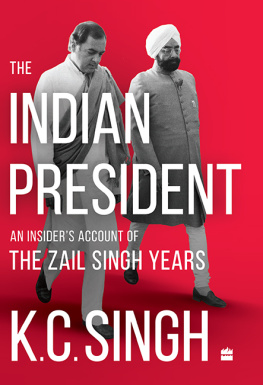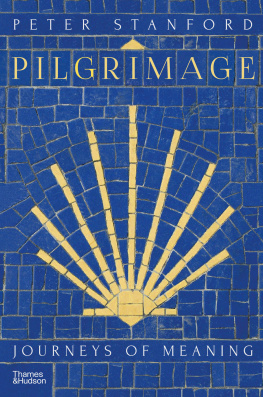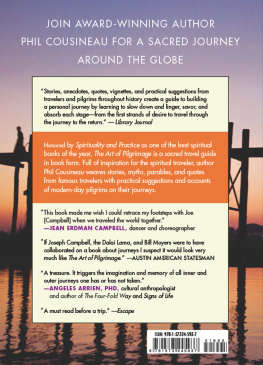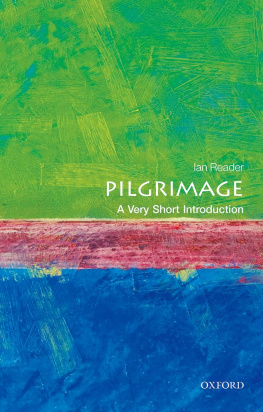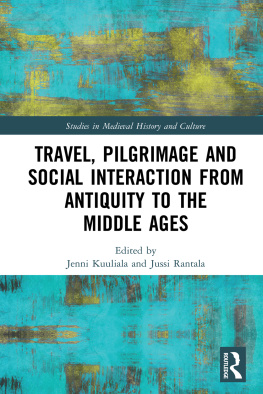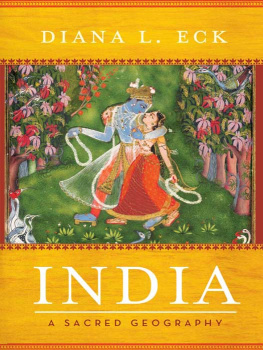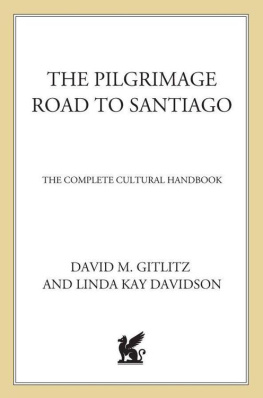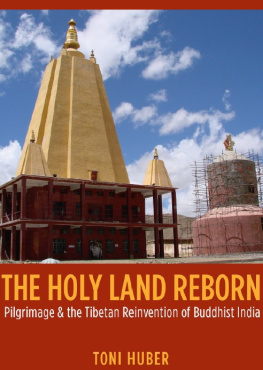SOUTH ASIA IN MOTION
EDITOR
Thomas Blom Hansen
EDITORIAL BOARD
Sanjib Baruah
Anne Blackburn
Satish Deshpande
Faisal Devji
Christophe Jaffrelot
Naveeda Khan
Stacey Leigh Pigg
Mrinalini Sinha
Ravi Vasudevan
UPRISING OF THE FOOLS
Pilgrimage as Moral Protest in Contemporary India
VIKASH SINGH
STANFORD UNIVERSITY PRESS
STANFORD, CALIFORNIA
Stanford University Press
Stanford, California
2017 by the Board of Trustees of the Leland Stanford Junior University.
All rights reserved.
No part of this book may be reproduced or transmitted in any form or by any means, electronic or mechanical, including photocopying and recording, or in any information storage or retrieval system without the prior written permission of Stanford University Press.
Printed in the United States of America on acid-free, archival-quality paper
Library of Congress Cataloging-in-Publication Data
Names: Singh, Vikash, 1974 author.
Title: Uprising of the fools : pilgrimage as moral protest in contemporary India / Vikash Singh.
Other titles: South Asia in motion.
Description: Stanford, California : Stanford University Press, 2017. | Series: South Asia in motion | Includes bibliographical references and index.
Identifiers: LCCN 2016028825 (print) | LCCN 2016031633 (ebook) | ISBN 9781503600379 (cloth : alk. paper) | ISBN 9781503601673 (pbk. : alk. paper) | ISBN 9781503601741 (ebook)
Subjects: LCSH: Hindu pilgrims and pilgrimagesIndiaHaridwr. | Religion and social statusIndia. | CapitalismMoral and ethical aspectsIndia. | IndiaReligionEconomic aspects. | IndiaReligious life and customs.
Classification: LCC BL1239.36.H37 S56 2017 (print) | LCC BL1239.36.H37 (ebook) | DDC 294.5/35095451dc23
LC record available at https://lccn.loc.gov/2016028825
Typeset by Bruce Lundquist in 10.75/15 Adobe Caslon
For Indu, Jhanvi, Shaurya and Deependra
As soon as man comes to life, he is at once old enough to die.
A medieval homily, Heidegger, Being and Time
For the philosophical tradition of the West, every relation between the same and the other, when it is no longer an affirmation of the supremacy of the same, reduces itself to an impersonal relation with a universal order.
Levinas, Totality and Infinity
CONTENTS
ACKNOWLEDGMENTS
This is a book on gift, gratitude, of the impossibility of returning. And perhaps this is so, because it is a gift by itself, say, in the form of the authorial name and its significance, real or imaginary. Thus, by definition, a certain appropriation of authority, surplus, capitalization based as much on others generosity as on their being there. These were the others whom I saw walking, often in pain, with bleeding feet, traversing their traumas and desires, others who trusted a stranger with their stories, their realities. Insofar as they are the nameless subjects of this account, of these failings of representation, insofar as it is their works and words that I strive after, they are the body of this text, which gives me this name of author. Their abundant hospitality I must first thank. Then there are others who led me to these performances, helped me reach out to people, who carried my burden or suffered my occupationAnkit of Chhaprauli, Indu, and Jhanvi. I am in their debt.
Before these, there was Deependraa friend, guide, mentorwho taught me to read, found the books, tolerated me, and gifted from a faith of which only he knows the source, the possibility of my own faith, in the self, in others. In Indias anomic social conditions, the near-pathological uncertainty of existence, trust is undoubtedly the hardest thing to find. For someone to conjure faith then, and gift it, is by all means a modern miraclea leap of faith, which must have distinguished the saint in another epoch. To Deependra, I owe everything. In those formative years, I also learned a lot from my interactions with other members of the Bhopal school, including Madan Soni, Rustam Singh, Teji Grover, Udayan Vajpayee, and my friend, Sovendra Singh.
I am thankful to Jason Torkelson, David Peterson, Andrew Stroffolino, Joo Cowperthwaite, Crystal Bedley, Susan Kremmel, and many others. They helped me navigate a time (hand holding me, especially you, David) while I was still in the shock of the American academic culture. This project itself would be inconceivable without the tremendous help and faith of Arlene Stein. Arlene devoted an inordinate amount of time and effort on this project, reading and editing proposals and large parts of the manuscript, brainstorming titles, and finally working out the title as it now stands. In addition, at Rutgers, I am also very thankful to the kindness of Jzsef Brcz, and his remarkable ability to keep his passion for justice and intellectual honesty, and infectiously pass it on, in the face of all the objections and objectivities of the university discourse. And I am thankful to Karen Cerulo for her love and kindness; Karen is one to never miss a kind deed, and I have been on the receiving end of her kindness far too many times. Dianne Yarnell, Tamara Crawford, and Lisa Iorillo also played vital parts in the eventual realization of this project. Furthermore, the fieldwork for this project was made possible by the financial and academic support of the Rutgers South Asian Studies Program, the Graduate School of Arts and Sciences, and the Rutgers Sociology Department.
I am no less grateful to my colleagues at Montclair State for their unstinting support. The passionate conversations with Yong Wang; the calming influence of Janet Ruane, Susan ONeil, and Ben Hadis; the enthusiasm of Sangeeta Parashar; and the moral support of Jay Livingston, Yasemin Besen-Cassino, and Chris Donoghuethey have all played their part in making this possible. I am also thankful for the generous financial help from the College of Humanities and Social Sciences at Montclair State and the Provosts Office in the past two years, which has allowed me to keep working on this project and bring it to fruition. I must thank our Dean, Robert Friedman and Provost, Willard Gingerich for this kindness. I would also like to thank Sumit Guha for first suggesting the Kanwar as a research topic, Arvind Rajagopal for his support and for several interesting discussions on the subject, and Paul Courtright for his continued moral support.
I am deeply grateful for the invaluable feedback and encouragement I have received from members of the New York Psycho-Social Group, including John Andrews, George Cavalletto, Patricia Clough, Tom DeGloma, Joshua Klein, Christina Nadler, Catherine Silver, and Ilgin Yorukoglu. They read several of these chapters, as I was still timidly writing them, and blessed them with the value they appeared to see in here. I must single out Lynn Chancer for her compassion, generosity, and help. Going far beyond the call of duty seems to be second nature to Lynn, and she surely did so in my case. I cannot thank her enough for her trust and bounteous supply of kind words and deeds.
Beyond these people I know personally, I have received invaluable suggestions from many anonymous reviewers along the waythrough Stanford University Press and the journals Ethnography, Subjectivity, Sociological Forum, and Culture and Religion. These reviews gave me ideas, some of which became chapters and key themes of this work. If this book lands in the hands of these reviewers at some point, I want them to know that their kind readings and generous gifts of ideas have made it possible. I also must thank Jenny Gavacs for making the publication process a wonderful and seamless experience. From the first discussions on the proposal, Jenny made my first experience in book publishing refreshingly efficient and smooth. What Jenny began, others carried on! I owe much to the excellent editors at Stanford University PressAnne Fuzellier Jain, Kate Wahl, Cynthia Lindlof, and James Holt. It has been wonderful working with Kate in the later stages of the project, while Anne has been patient and thorough in bringing this work into production. I also must thank Cynthia for her painstaking and precise copy editing. And, I am surely grateful to Thomas Blom Hansen as much for bringing this book out as for making room for Lacanperhaps the most important influence on my intellectual careerin South Asian Studies.
Next page

